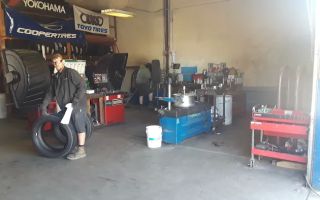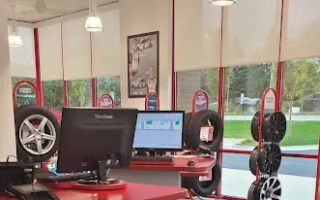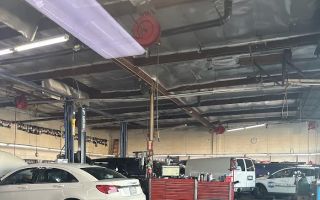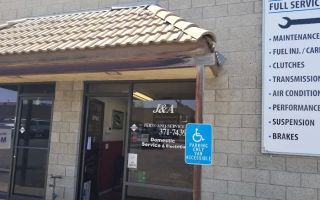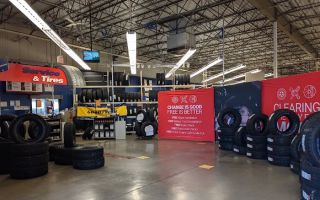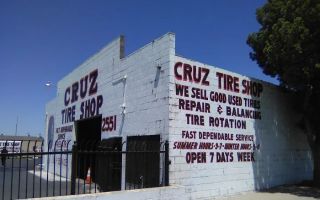How to Select the Right Trailer for Your Needs
- Understanding Your Trailer Needs
- Different Trailer Types Available
- Consider Your Towing Capacity
- Trailer Durability and Build Quality
- Choosing the Right Trailer for Long-Term Use
- Real-Life Case Study: Choosing the Right Trailer
- Conclusion
1. Understanding Your Trailer Needs
Choosing the right trailer is a significant decision that can impact your daily operations, whether you’re hauling goods for your business or simply need to transport your motorcycle or boat. Having been in similar situations, I can tell you that understanding your exact needs is the first step in selecting the perfect trailer. What do you plan on transporting? Do you need something that can handle heavy-duty loads, or are you looking for a more compact and lightweight trailer?
It's essential to take a few minutes to assess what you will be using the trailer for. If you're in a rural area, you might need a trailer that can handle rough terrain. Alternatively, if you're based in an urban environment, a more compact trailer that fits your vehicle and parking space might be a priority. For instance, I once had to choose between a utility trailer and a car hauler. I went with the utility trailer because I needed to transport both light materials and my off-road vehicle, so versatility became a crucial deciding factor.
Ultimately, identifying how much weight, size, and frequency of use your trailer needs to accommodate will save you time and money in the long run. For example, if you’re looking to haul cars or heavy equipment, you’ll need a different type of trailer compared to someone transporting garden tools or small furniture. The clearer you are about your needs, the more likely you are to select a trailer that will serve you well for years to come.
2. Different Trailer Types Available
Once you’ve identified your trailer needs, the next step is understanding the different types of trailers available on the market. With so many options to choose from, it can be overwhelming. But once you know what each type of trailer offers, it becomes easier to narrow down your selection. Below are some common trailer types that might be relevant to your situation:

Pick Your Part - Help Yourself
1232 Blinn Ave, Wilmington, CA 90744, USA
2.1 Utility Trailers
Utility trailers are versatile, commonly used for transporting a wide variety of cargo. They are ideal for moving furniture, garden tools, or even small vehicles. When I was considering purchasing a trailer, I opted for a utility trailer as it could handle a range of tasks. These trailers are available in both open and enclosed versions, with the open ones being particularly useful for hauling bulky items. They are lightweight, making them easy to tow, yet they are sturdy enough to carry moderate loads.

Pick Your Part - Greer
13054 E Wade Hampton Blvd, Greer, SC 29651, USA
2.2 Car Haulers
If you’re looking to transport vehicles, a car hauler trailer is the way to go. These trailers are specifically designed to carry cars, trucks, and other large vehicles. Car haulers are typically equipped with ramps for easy loading and unloading. I remember helping a friend move their classic car using a car hauler, and it was an essential tool for transporting the vehicle safely. Depending on the model, car haulers can be open or enclosed and can carry one or multiple vehicles at once.
2.3 Enclosed Trailers
Enclosed trailers provide added protection for your cargo, making them an excellent choice if you need to transport items that require weather protection. These trailers are often used by businesses for deliveries or by individuals transporting valuable items. I once used an enclosed trailer to transport my motorcycle across the country, and it was reassuring to know that my bike was shielded from the elements during the entire trip. Enclosed trailers are also an excellent choice for keeping your cargo safe from theft.
2.4 Dump Trailers
For those in the construction or landscaping business, a dump trailer is a must-have. These trailers are designed to carry large loads of dirt, debris, or other materials that need to be unloaded quickly and efficiently. I’ve used a dump trailer for hauling yard waste, and its ability to tilt and unload at the push of a button was a huge time-saver. If you're working with heavy materials, a dump trailer is perfect for making the task easier and more efficient.
3. Consider Your Towing Capacity
Before selecting a trailer, it’s crucial to assess your vehicle’s towing capacity. Every vehicle has a specific limit on how much weight it can safely tow. This limit is set by the manufacturer and should not be exceeded to avoid damaging your vehicle or putting yourself in a dangerous situation. The weight of the trailer itself, plus the weight of your cargo, all count toward the total towing weight, so you must ensure your vehicle can handle it.
To determine your towing capacity, check your vehicle’s owner manual, or find the manufacturer’s specifications online. I learned this lesson the hard way when I attempted to tow a trailer that was just too heavy for my truck, and it caused strain on the engine. For instance, my truck was only rated to tow 5,000 pounds, but I was hauling 6,000 pounds, which made for a very slow and unsafe trip.
Once you know your towing limit, select a trailer that stays well within this range. It’s better to choose a lighter trailer that allows for some extra capacity. If you often tow heavy loads, you might need to upgrade your vehicle or opt for a larger trailer with more advanced features to ensure safe and efficient towing.
4. Trailer Durability and Build Quality
The durability and build quality of your trailer are vital factors to consider, especially if you plan to use it regularly. A well-built trailer will not only last longer but will also perform better under heavy use. When I was looking for a trailer to transport my equipment, I made sure to choose a model with a sturdy frame and quality materials that could withstand the weight and conditions of frequent use.
Check the trailer’s frame material, axles, wheels, and suspension system. Steel frames are typically the most durable, though aluminum trailers are lightweight and corrosion-resistant, making them an excellent option for areas with high humidity. I personally prefer steel trailers because of their strength and ability to handle rough terrain. Make sure the wheels and axles are rated for the weight you plan to carry and look for trailers with quality tires that provide good traction and performance.
It’s also a good idea to inspect the trailer’s finish. Rust-proof coating or galvanized steel can help protect the trailer against the elements and extend its lifespan. If you're buying a used trailer, be sure to check for signs of wear or rust that might indicate a potential issue.
5. Choosing the Right Trailer for Long-Term Use
If you're looking for a trailer that you will use for several years, it’s important to choose one that is durable, versatile, and easy to maintain. For long-term use, investing in a higher-quality trailer may save you money in the long run by reducing repair costs and increasing the trailer’s resale value. I’ve learned that purchasing a slightly more expensive trailer upfront can save you the hassle of constant repairs or having to buy a replacement later on.
Consider how easy it will be to maintain the trailer, too. Some trailers require more upkeep than others, especially if you’re using them frequently for heavy loads. I’ve always prioritized trailers with easy-to-access parts and minimal maintenance requirements. Opting for a trailer with standard, readily available parts will ensure that any repairs or replacements are quick and affordable.
Another aspect to consider is the trailer’s resale value. A well-maintained, durable trailer will retain its value over time, which can be beneficial if you decide to upgrade or sell it in the future. Trailers made by reputable brands often have higher resale values and better warranties, which can offer additional peace of mind.
6. Real-Life Case Study: Choosing the Right Trailer
Let me share a real-life experience that highlights the importance of selecting the right trailer. I once helped a friend choose a trailer for hauling his landscaping equipment. He initially went for a low-cost, lightweight trailer that he thought would do the job. However, once he started using it regularly, he realized that the trailer wasn’t sturdy enough to handle the weight of the equipment and started to show signs of wear. After learning from this experience, he upgraded to a more robust utility trailer with a steel frame and reinforced suspension. This investment paid off, as the new trailer held up under pressure and provided greater safety on the road.
This case emphasizes the importance of selecting a trailer that matches your long-term needs, not just the immediate price tag. Investing in quality can help you avoid costly repairs and frustration down the road.
7. Conclusion
Choosing the right trailer for your needs doesn’t have to be complicated, but it does require careful consideration of your towing capacity, the types of cargo you’ll be hauling, and the trailer’s durability. By understanding your needs and selecting the appropriate trailer type, you can ensure that your trailer works for you, not against you. Whether you need a utility trailer, a car hauler, or an enclosed trailer, taking the time to choose wisely will pay off in the long run. If you’re ready to invest in a reliable trailer, be sure to check out the offerings at Rescue & Towing for a range of high-quality options.

